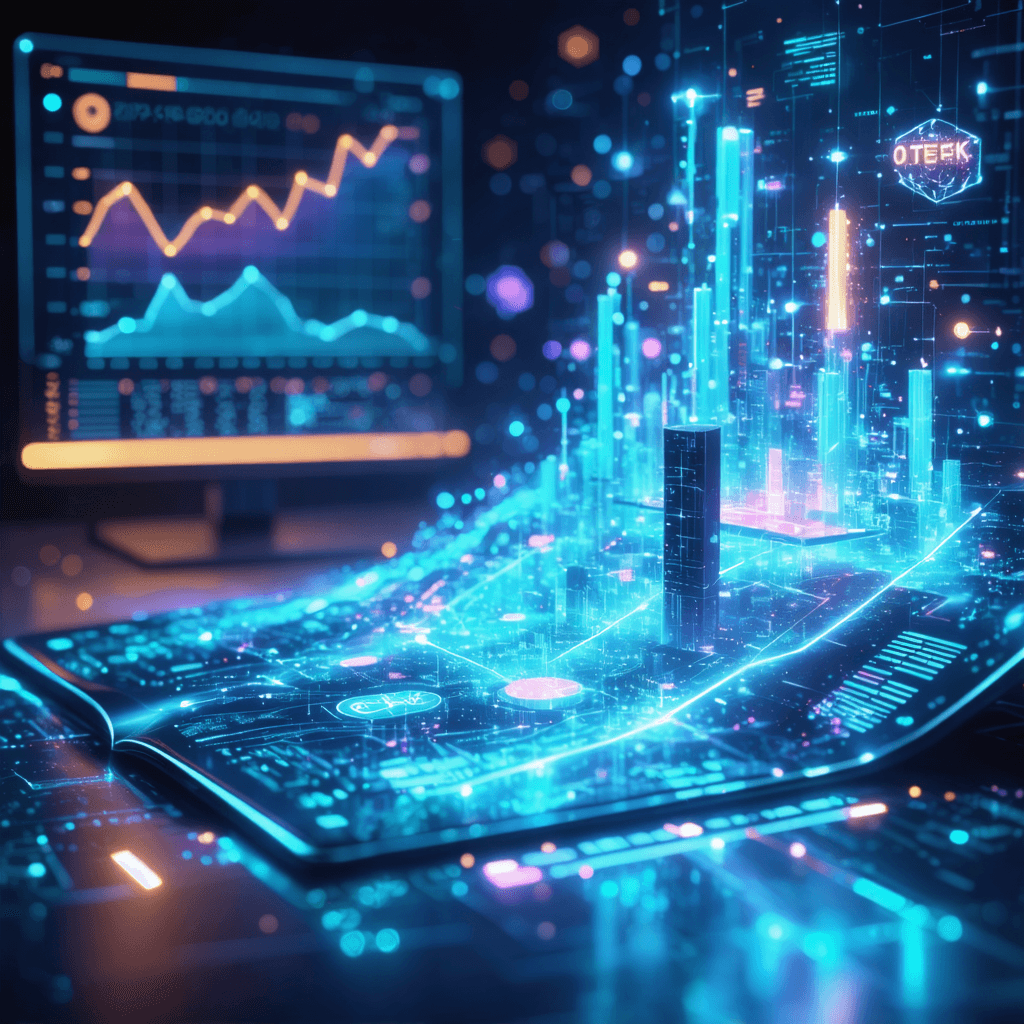AI-Powered Digital Marketing: How Smart Systems Reshaped Business Growth in 2024 and Beyond
In the rapidly evolving landscape of digital marketing, 2024 marked a transformative year where artificial intelligence ceased to be a buzzword and became an indispensable driver of business growth. As we move through 2025, the impact of AI-powered marketing solutions continues to reshape how businesses connect with their audiences and optimize their marketing strategies.
The Evolution of AI in Digital Marketing
The integration of AI into digital marketing has fundamentally changed how businesses approach customer engagement and campaign optimization. According to recent industry data, companies that implemented AI-driven marketing strategies in 2024 saw an average increase of 34% in customer engagement rates and a 28% improvement in conversion rates.
Personalization at Scale
One of the most significant advantages of AI-powered marketing has been the ability to deliver hyper-personalized experiences to customers. Machine learning algorithms now analyze vast amounts of consumer data to create detailed customer profiles and predict behavior patterns with unprecedented accuracy. This has enabled:
- Real-time content customization
- Predictive product recommendations
- Personalized email marketing campaigns
- Dynamic pricing strategies
Key AI Marketing Trends That Dominated 2024
1. Conversational AI and Chatbots
Advanced natural language processing has revolutionized customer service and engagement. Modern AI chatbots can now handle complex queries, understand context, and maintain natural conversations, providing 24/7 customer support while reducing operational costs by up to 30%.
2. Predictive Analytics
AI-driven predictive analytics has become increasingly sophisticated, enabling businesses to:
- Forecast market trends with greater accuracy
- Identify potential customer churn
- Optimize inventory management
- Plan targeted marketing campaigns
3. AI-Generated Content
Content creation has been transformed by AI tools that can:
- Generate engaging blog posts and social media content
- Create compelling ad copy
- Produce video scripts
- Design visual content
Studies show that AI-assisted content creation has helped businesses increase their content output by 65% while maintaining quality standards.
Impact on Marketing ROI
The implementation of AI solutions has led to significant improvements in marketing ROI:
- 45% reduction in customer acquisition costs
- 50% increase in lead generation efficiency
- 35% improvement in customer retention rates
- 40% higher email open rates through AI-optimized subject lines
Practical Applications and Success Stories
E-commerce Optimization
Major online retailers have leveraged AI to enhance their e-commerce operations, resulting in:
- 25% increase in average order value
- 30% reduction in cart abandonment rates
- 40% improvement in product recommendation accuracy
Social Media Marketing
AI-powered social media tools have revolutionized how brands engage with their audiences:
- Optimal posting times based on audience behavior
- Content performance prediction
- Automated ad campaign optimization
- Real-time sentiment analysis
Challenges and Solutions
While AI adoption has accelerated, businesses have had to address several challenges:
- Data Privacy Concerns
- Implementation of robust data protection measures
- Transparent data collection policies
- Compliance with global privacy regulations
- Integration Issues
- Seamless integration with existing systems
- Staff training and adaptation
- Regular system updates and maintenance
Future Outlook
As we progress through 2025, several emerging trends are shaping the future of AI-powered digital marketing:
1. Voice Search Optimization
With voice-activated devices becoming increasingly prevalent, AI is helping businesses optimize their content for voice search, leading to:
- Enhanced local SEO strategies
- Conversational content development
- Voice-commerce opportunities
2. Advanced Marketing Automation
Next-generation marketing automation platforms are incorporating:
- Cross-channel campaign coordination
- Automated A/B testing
- Real-time campaign adjustments
- Predictive audience segmentation
3. Enhanced Visual Recognition
AI-powered visual recognition is enabling:
- Improved social media monitoring
- Better understanding of user-generated content
- Advanced competitor analysis
- Enhanced brand protection
Best Practices for Implementation
To maximize the benefits of AI-powered marketing:
- Start with Clear Objectives
- Define specific goals and KPIs
- Identify areas where AI can provide the most value
- Establish measurement criteria
- Focus on Data Quality
- Implement robust data collection methods
- Ensure data accuracy and relevance
- Regular data cleaning and maintenance
- Maintain Human Oversight
- Balance automation with human creativity
- Regular performance review
- Continuous strategy refinement
Measuring Success
Successful AI implementation in digital marketing can be measured through:
- Increased customer lifetime value
- Higher engagement rates
- Improved conversion rates
- Better ROI on marketing campaigns
- Enhanced customer satisfaction scores
Conclusion
The integration of AI in digital marketing has moved from being a competitive advantage to a necessary component of successful business growth. As we continue through 2025, businesses that embrace and effectively implement AI-powered marketing solutions will be better positioned to meet evolving customer expectations and drive sustainable growth.
Ready to transform your digital marketing strategy with AI-powered solutions? Explore our comprehensive courses and resources at 01TEK. Our expert-led programs will help you master the latest AI marketing tools and techniques, ensuring your business stays ahead in the digital age. Click here to begin your AI marketing journey with 01TEK.
Remembering you are going to die is the best way I know to avoid the trap of thinking you have something to lose.
Steve Jobs



